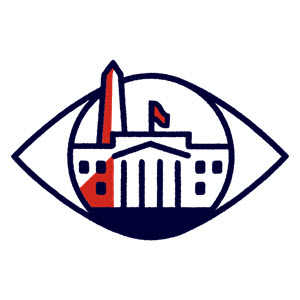U.S. Department of Labor Offers Timely Guidance to Employers in the COVID-19 Environment

Employers may need to ensure that time-keeping systems comply with FLSA requirements and exemptions remain valid in this COVID-19 environment.
Recent guidance concerning compliance with Fair Labor Standards Act ("FLSA") Wage and Hour laws may be helpful to employers that are operating with many employees working remotely, or have sales associates that have historically been exempt from overtime under the FLSA outside sales exemption. Employers may need to ensure that time-keeping systems comply with FLSA requirements and exemptions remain valid in this environment. It may be timely for employers to consult with legal counsel on these and related topics.
U.S. DOL Field Assistance Bulletin 2020-5
Many employees are now telecommuting or otherwise working remotely due to the COVID-19 pandemic and government orders which restrict travel and normal workplace operations. This has raised new questions and made it increasingly important for employers to ensure that time-keeping systems comply with FLSA requirements. To assist with this, on August 24, 2020, the U.S. Department of Labor ("U.S. DOL") issued Field Assistance Bulletin 2020-5, entitled "Employers' obligation to exercise reasonable diligence in tracking teleworking employees' hours of work."
The bulletin notes that employers must pay for all hours worked, including hours not requested but "suffered or permitted" to be worked. It provides helpful details as to the standards of diligence expected of employers in determining and recording hours of service that the employer "knew or should have known" were worked. The FLSA places a significant burden on employers, that are deemed to have "actual or constructive knowledge of additional unscheduled hours worked by their employees, and courts consider whether the employer should have acquired knowledge of such hours worked through reasonable diligence."
Furthermore, the bulletin notes that "the mere promulgation of a rule against such work is not enough. Management has the power to enforce the rule and must make every effort to do so." The bulletin also suggests that employers can demonstrate appropriate diligence by establishing a reasonable process for an employee to report unscheduled work time. However, the employer cannot discourage or impede accurate reporting under this process and must train employees in the use of the system.
If such a system is made available, the bulletin notes that although "an employer may have access to non-payroll records of employees' activities, such as records showing employees accessing their work-issued electronic devices outside of reported hours, reasonable diligence generally does not require the employer to undertake impractical efforts such as sorting through this information to determine whether its employees worked hours beyond what they reported."
Action Needed to Demonstrate Compliance With the FLSA
Employers should consider the circumstances in which each employee is currently working and take action to appropriately obtain and account for unscheduled time worked. For example, an employer should:
- Set up a reasonable process for employees to report unscheduled hours worked.
- Clearly communicate any rules and procedures related to unscheduled work time.
- Train employees in use of the system.
- Ensure that access to the system is not impeded or discouraged.
For additional information, see the Field Assistance Bulletin 2020-5.
U.S. DOL FLSA Outside Sales Exemption
Due to the continuing restrictions related to the COVID-19 pandemic, some employers may need to evaluate whether employee exemptions from minimum wage and/or overtime under the FLSA and similar state laws remain valid for certain employees, notably outside sales employees.
The U.S. DOL administers FLSA regulations including regulations applicable to outside sales employees. Employees meeting the exemption criteria are not subject to federal minimum wage and overtime pay requirements.
USDOL Fact Sheet 17F defines and explains the qualifications for exemption for outside sales employees. In brief, the employee's primary duty must be making sales or obtaining orders or contracts for services or for the use of facilities, and the employee must be customarily and regularly engaged away from the employer's places of business. "Customarily and regularly" means greater than occasional but less than constant; i.e., work normally done every workweek.
Away From Employer's Place of Business
The U.S. DOL Fact Sheet provides that "Outside sales does not include sales made by mail, telephone or the Internet unless such contact is used merely as an adjunct to personal calls. Any fixed site, whether home or office, used by a salesperson as a headquarters or for telephonic solicitation of sales is considered one of the employer's places of business, even though the employer is not in any formal sense the owner or tenant of the property."
To the extent that outside salespersons have generally not been making regular visits to customers, trade shows and similar events due to such restrictions, it may be timely for employers to seek appropriate legal counsel to determine whether the exempt status remains valid. Wage and Hour laws remain a common subject of litigation.
Finally, the U.S. DOL Fact Sheet notes that because "state law may differ from the federal FLSA, an employer must comply with the standard most protective to employees." Links to state labor agencies can be found at https://www.dol.gov/agencies/whd/state/contacts.
For Additional Information:
The final rule Defining and Delimiting the Exemptions for Executive, Administrative, Professional, Outside Sales and Computer Employees (9/27/2019):
U.S. DOL Wage and Hour Division Website: http://www.wagehour.dol.gov
ADP Compliance Resources
ADP maintains a staff of dedicated professionals who carefully monitor federal and state legislative and regulatory measures affecting employment-related human resource, payroll, tax and benefits administration, and help ensure that ADP systems are updated as relevant laws evolve. For the latest on how federal and state tax law changes may impact your business, visit the ADP Eye on Washington Web page located at www.adp.com/regulatorynews.
ADP is committed to assisting businesses with increased compliance requirements resulting from rapidly evolving legislation. Our goal is to help minimize your administrative burden across the entire spectrum of employment-related payroll, tax, HR and benefits, so that you can focus on running your business. This information is provided as a courtesy to assist in your understanding of the impact of certain regulatory requirements and should not be construed as tax or legal advice. Such information is by nature subject to revision and may not be the most current information available. ADP encourages readers to consult with appropriate legal and/or tax advisors. Please be advised that calls to and from ADP may be monitored or recorded.
If you have any questions regarding our services, please call 855-466-0790.
ADP, Inc.
One ADP Boulevard, Roseland, NJ 07068
adp.com
Updated on October 6, 2020



